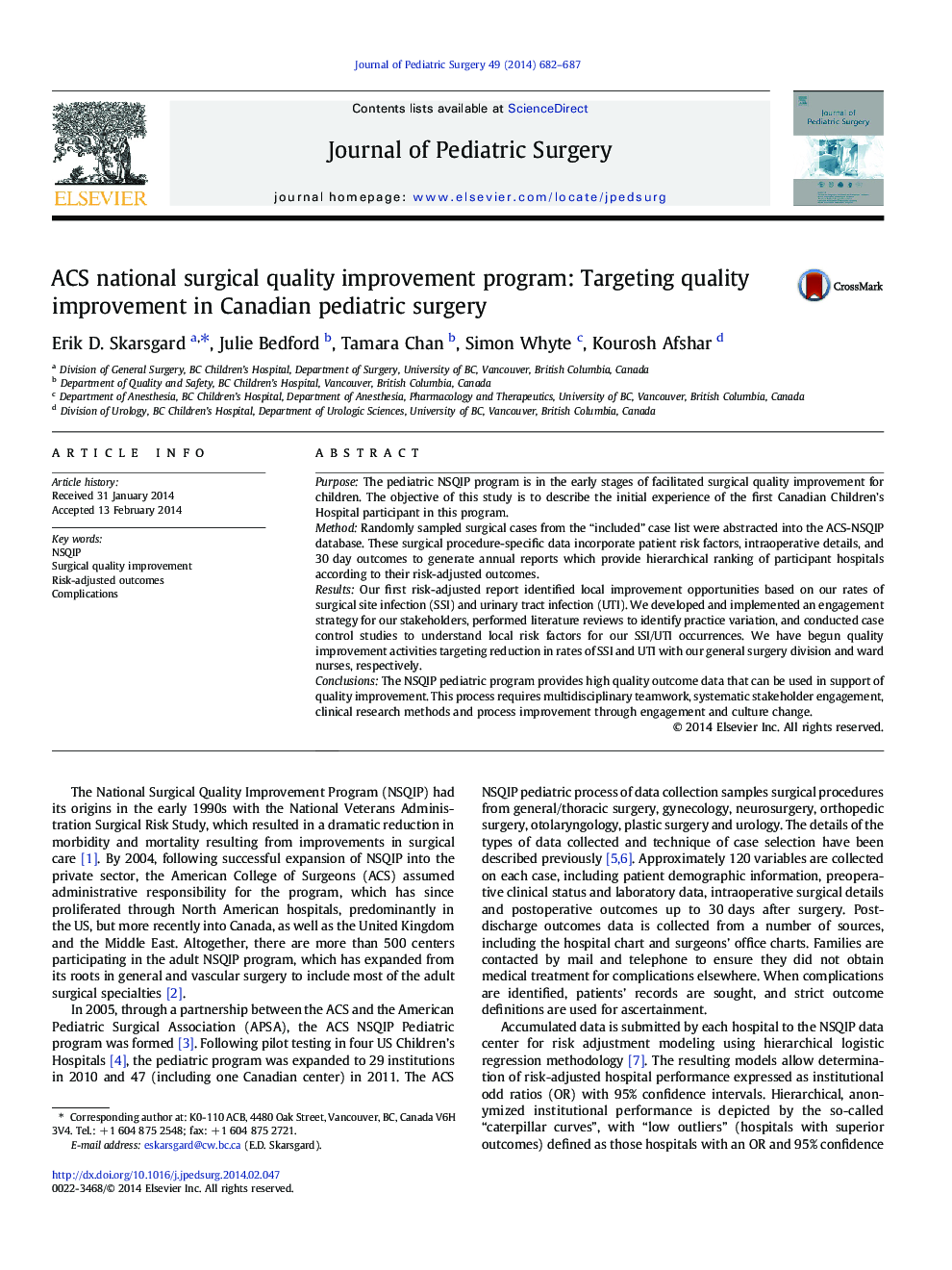| Article ID | Journal | Published Year | Pages | File Type |
|---|---|---|---|---|
| 4155718 | Journal of Pediatric Surgery | 2014 | 6 Pages |
PurposeThe pediatric NSQIP program is in the early stages of facilitated surgical quality improvement for children. The objective of this study is to describe the initial experience of the first Canadian Children’s Hospital participant in this program.MethodRandomly sampled surgical cases from the “included” case list were abstracted into the ACS-NSQIP database. These surgical procedure-specific data incorporate patient risk factors, intraoperative details, and 30 day outcomes to generate annual reports which provide hierarchical ranking of participant hospitals according to their risk-adjusted outcomes.ResultsOur first risk-adjusted report identified local improvement opportunities based on our rates of surgical site infection (SSI) and urinary tract infection (UTI). We developed and implemented an engagement strategy for our stakeholders, performed literature reviews to identify practice variation, and conducted case control studies to understand local risk factors for our SSI/UTI occurrences. We have begun quality improvement activities targeting reduction in rates of SSI and UTI with our general surgery division and ward nurses, respectively.ConclusionsThe NSQIP pediatric program provides high quality outcome data that can be used in support of quality improvement. This process requires multidisciplinary teamwork, systematic stakeholder engagement, clinical research methods and process improvement through engagement and culture change.
